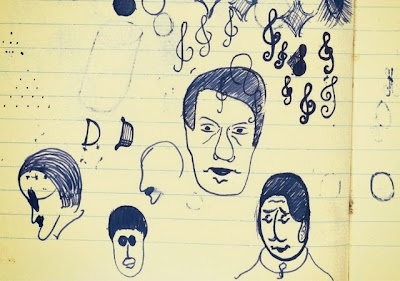 |
| A cartoon of Oscar Wilde at the end of his visit to America in 1882, The Judge magazine. |
[
UPDATE - Martin Amis on the perfect paragraph rhetoric of Hitchens
here and below]
Christopher Hitchens was a man of inimitable intellect and staggering, effortless eloquence. I've often pondered how he possessed such mastery and control of the language and rhetorical flair. I feel that James Joyce,
speaking to Vanity Fair in Paris in 1922, gives a hint:
"All the great talkers have spoken in the language of Sterne, Swift, or the Restoration. Even Oscar Wilde. He studied the restoration through a microscope in the morning and repeated it through a telescope in the evening."












